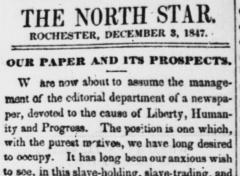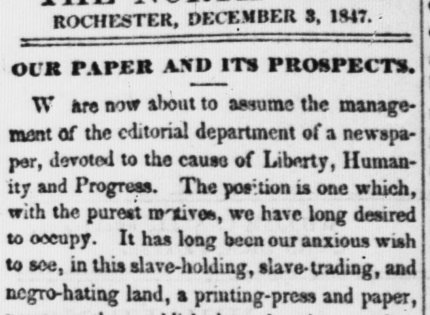
HISTORY ONLINE 24/7/365
RECONSTRUCTION ERA
Reconstruction in U. S. History 2
Between 1865 and 1877, the nation faced the daunting challenge of reuniting after 4 years of bloody conflict in the Civil War. This page features resouces to understand key individuals, events, and legislationResources:
Click here for 10 facts about Lincoln’s assisination you might not know! Click here for the reconstruction/civil war amendments at the U.S. Senate Click here to read the actual text of the amendments at the National Constitution Center Click here to learn more about the Freedman's Bureau from the History Channel Click here for information about the Freedman's Bureau in Augusta County, Virginia (the Staunton area) Click here to search the Augusta County Freedman's bureau records! Statements relating to the abuses of freedmen in Richmond Virginia Freedmen's Bureau records and info at the Smithsonian National Museum of African American History and Culture The 13th, 14th, and 15th Amendments to the Constitution of the United States address the issues of slavery and guarantee equal protection under the law for all citizens. Basic provisions of the amendments • The 13th Amendment bans slavery in the United States and all of its territories. • The 14th Amendment grants citizenship to all persons born in the United States and guarantees them equal protection under the law. • The 15th Amendment ensures all citizens the right to vote regardless of race, color, or previous condition of servitude. Although these three amendments guarantee equal protection under the law for all citizens, American Indians and women did not receive the full benefits of citizenship until later. The Reconstruction policies were harsh and created problems in the South. Reconstruction attempted to define the means by which all Southerners could live together equally. Reconstruction policies and problems • Southern military leaders could not hold office. • African Americans could hold public office. • African Americans gained equal rights as a result of the Civil Rights Act of 1866, which also authorized the use of federal troops comprised mainly of Northern soldiers for its enforcement. • Southern states adopted Black Codes to limit the economic and physical freedom of former slaves. • Federal troops supervised the South. • The Freedmen’s Bureau was established to aid former enslaved African Americans in the South. • Southerners resented Northern “carpetbaggers,” some of whom took advantage of the South during Reconstruction. End of Reconstruction ¬and its impact • Reconstruction ended in 1877 as a result of a compromise over the outcome of the election of 1876. • Federal troops were removed from the South. • Rights that African Americans had gained were lost through “Jim Crow” laws. • “Jim Crow” laws affected the rights of American Indians. The actions of Abraham Lincoln, Robert E. Lee, and Frederick Douglass created lasting impacts. Abraham Lincoln • Issued Reconstruction plan calling for reconciliation • Believed preservation of the Union was more important than punishing the South Robert E. Lee • Urged Southerners to reconcile with Northerners at the end of the war and reunite as Americans when some wanted to continue to fight Frederick Douglass • Fought for adoption of constitutional amendments that guaranteed voting rights • Was a powerful voice for human rights and civil liberties for all

NEW RESOURCE:
The Library of Congress has just
made much of the newspaper
writing of Fredrick Douglass
from 1847-1874 available
online! Click to check it out and
discover for yourself just how
persuasive his writing was!
Movie Tickets




































HISTORY ONLINE 24/7/365
mrbower.com
RECONSTRUCTION ERA
Reconstruction in U. S. History 2
Between 1865 and 1877, the nation faced the daunting challenge of reuniting after 4 years of bloody conflict in the Civil War. This page features resouces to understand key individuals, events, and legislationResources:
Click here for 10 facts about Lincoln’s assisination you might not know! Click here for the reconstruction/civil war amendments at the U.S. Senate Click here to read the actual text of the amendments at the National Constitution Center Click here to learn more about the Freedman's Bureau from the History Channel Click here for information about the Freedman's Bureau in Augusta County, Virginia (the Staunton area) Click here to search the Augusta County Freedman's bureau records! Statements relating to the abuses of freedmen in Richmond Virginia Freedmen's Bureau records and info at the Smithsonian National Museum of African American History and Culture The 13th, 14th, and 15th Amendments to the Constitution of the United States address the issues of slavery and guarantee equal protection under the law for all citizens. Basic provisions of the amendments • The 13th Amendment bans slavery in the United States and all of its territories. • The 14th Amendment grants citizenship to all persons born in the United States and guarantees them equal protection under the law. • The 15th Amendment ensures all citizens the right to vote regardless of race, color, or previous condition of servitude. Although these three amendments guarantee equal protection under the law for all citizens, American Indians and women did not receive the full benefits of citizenship until later. The Reconstruction policies were harsh and created problems in the South. Reconstruction attempted to define the means by which all Southerners could live together equally. Reconstruction policies and problems • Southern military leaders could not hold office. • African Americans could hold public office. • African Americans gained equal rights as a result of the Civil Rights Act of 1866, which also authorized the use of federal troops comprised mainly of Northern soldiers for its enforcement. • Southern states adopted Black Codes to limit the economic and physical freedom of former slaves. • Federal troops supervised the South. • The Freedmen’s Bureau was established to aid former enslaved African Americans in the South. • Southerners resented Northern “carpetbaggers,” some of whom took advantage of the South during Reconstruction. End of Reconstruction ¬and its impact • Reconstruction ended in 1877 as a result of a compromise over the outcome of the election of 1876. • Federal troops were removed from the South. • Rights that African Americans had gained were lost through “Jim Crow” laws. • “Jim Crow” laws affected the rights of American Indians. The actions of Abraham Lincoln, Robert E. Lee, and Frederick Douglass created lasting impacts. Abraham Lincoln • Issued Reconstruction plan calling for reconciliation • Believed preservation of the Union was more important than punishing the South Robert E. Lee • Urged Southerners to reconcile with Northerners at the end of the war and reunite as Americans when some wanted to continue to fight Frederick Douglass • Fought for adoption of constitutional amendments that guaranteed voting rights • Was a powerful voice for human rights and civil liberties for all

NEW RESOURCE:
The Library of Congress has just
made much of the newspaper writing
of Fredrick Douglass from 1847-1874
available online! Click to check it out
and discover for yourself just how
persuasive his writing was!
Movie Tickets



































































